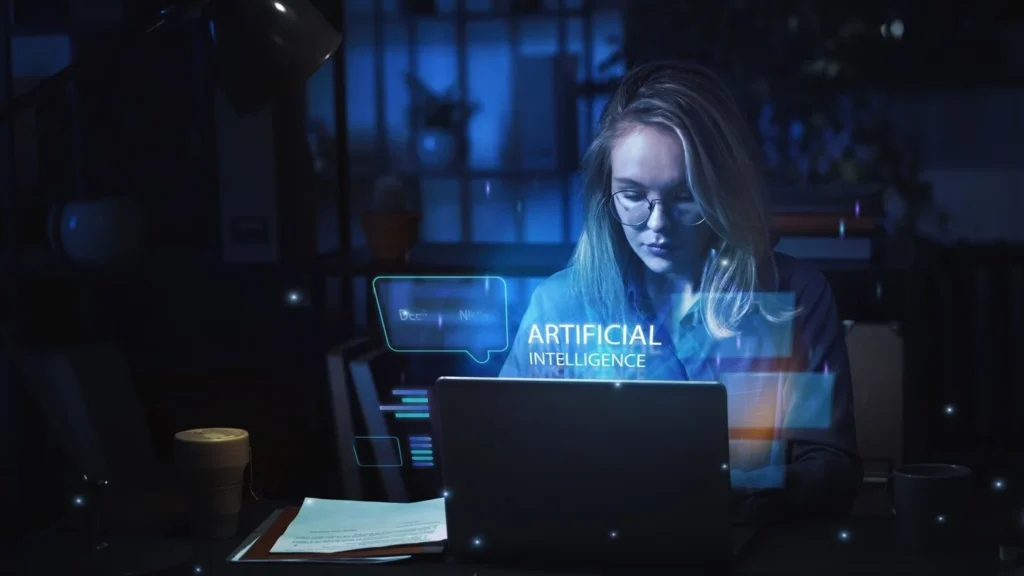Key Takeaways
- AI can significantly enhance content creation by providing efficiency and creativity.
- Understanding the ethical implications and biases in AI-generated content is crucial.
- Staying updated with the latest trends in AI can give content creators a competitive edge.
Overview
Artificial Intelligence (AI) is rapidly transforming various industries, and content creation is no exception. AI shapes how we create and consume content, from generating articles to detecting plagiarism. For instance, an AI detector can ensure the authenticity and originality of written work, safeguarding against potential copyright infringements. This article delves into the future of AI-driven content, highlighting its benefits, potential drawbacks, and the ethical considerations that come with it. This comprehensive exploration aims to help content creators understand how AI can be both a powerful tool and a complex challenge in the digital age.
Benefits of AI in Content Creation
AI offers several advantages in the realm of content creation. One of the most notable is efficiency. With AI tools, content creators can produce high-quality articles in a fraction of the time it would take manually. This increases productivity and allows for faster turnaround on large-scale content projects. Furthermore, AI can add a layer of creativity by suggesting headlines, optimizing SEO, and generating paragraphs that align with the intended narrative. For example, AI algorithms can analyze trending topics and keywords, ensuring the content is current and engaging.
Real-Life Applications of AI in Content
The real-life applications of AI in content creation are vast and varied. AI can assist in generating blog articles, social media posts, and other forms of written content. One popular application is in the realm of Search Engine Optimization (SEO). AI tools can analyze search data and recommend keywords to help content rank higher in search engine results. Additionally, AI can detect and correct grammatical errors, making the content more polished and professional.
- Generating blog articles and social media posts.
- Optimizing content for search engines (SEO).
- Detecting and correcting grammatical errors.
For instance, AI-based writing assistants like Grammarly have become indispensable tools for writers. They offer real-time suggestions and corrections, improving the overall quality of the text. Similarly, AI-powered content recommendation systems can help target the right audience, making content more engaging and relevant. These systems analyze user behavior and preferences to suggest articles or videos that users will likely find interesting, thereby increasing engagement and retention.
Ethical Considerations and Biases
While AI can significantly enhance content creation, it also raises ethical questions. Issues such as data privacy, misinformation, and inherent biases in AI algorithms cannot be ignored. For example, AI algorithms are only as good as the data they are trained on. If the training data contains biases, these biases will be reflected in the AI-generated content. Content creators must understand these challenges and employ AI responsibly. According to a recent article in Forbes, addressing these ethical concerns can pave the way for more trustworthy and reliable AI-generated content. Content creators must be vigilant about their data sources and how their AI tools are being used.
AI and Human Collaboration: The Best of Both Worlds
As AI advances, the future of content creation will likely depend on a harmonious collaboration between AI technology and human creativity. While AI excels at automating repetitive tasks, analyzing data, and optimizing content for SEO, humans bring emotional intelligence, cultural awareness, and innovative thinking to the table. This synergy allows content creators to leverage AI efficiently while maintaining the authenticity and relatability that resonate with audiences. By integrating AI tools into their workflows, creators can focus more on crafting compelling narratives, refining brand voice, and connecting with readers on a deeper level, resulting in a more holistic and enriched content creation process.
The Future Landscape of AI in Content Creation
In the future, more artificial intelligence (AI) will likely be used in content production. AI technologies will become increasingly complex and approachable as advances like machine learning and natural language processing (NLP) continue to advance. NLP is poised to transform how AI comprehends and produces human language, creating more organic and cohesive material. AI will be a significant factor in determining how content creation develops in the future as it gets more incorporated into workflow procedures. Those who keep up with the most recent developments in artificial intelligence (AI) stand to gain a competitive edge by being able to create better-quality material more quickly.
Conclusion
AI holds immense potential to revolutionize content creation. It offers significant benefits by making the process more efficient and creative. However, navigating AI’s ethical implications and biases is equally essential. Staying informed and responsible can ensure that AI is a powerful ally in content creation. As we progress, balancing leveraging AI for its strengths and mitigating its potential drawbacks will be critical to successfully integrating it into content creation strategies.







